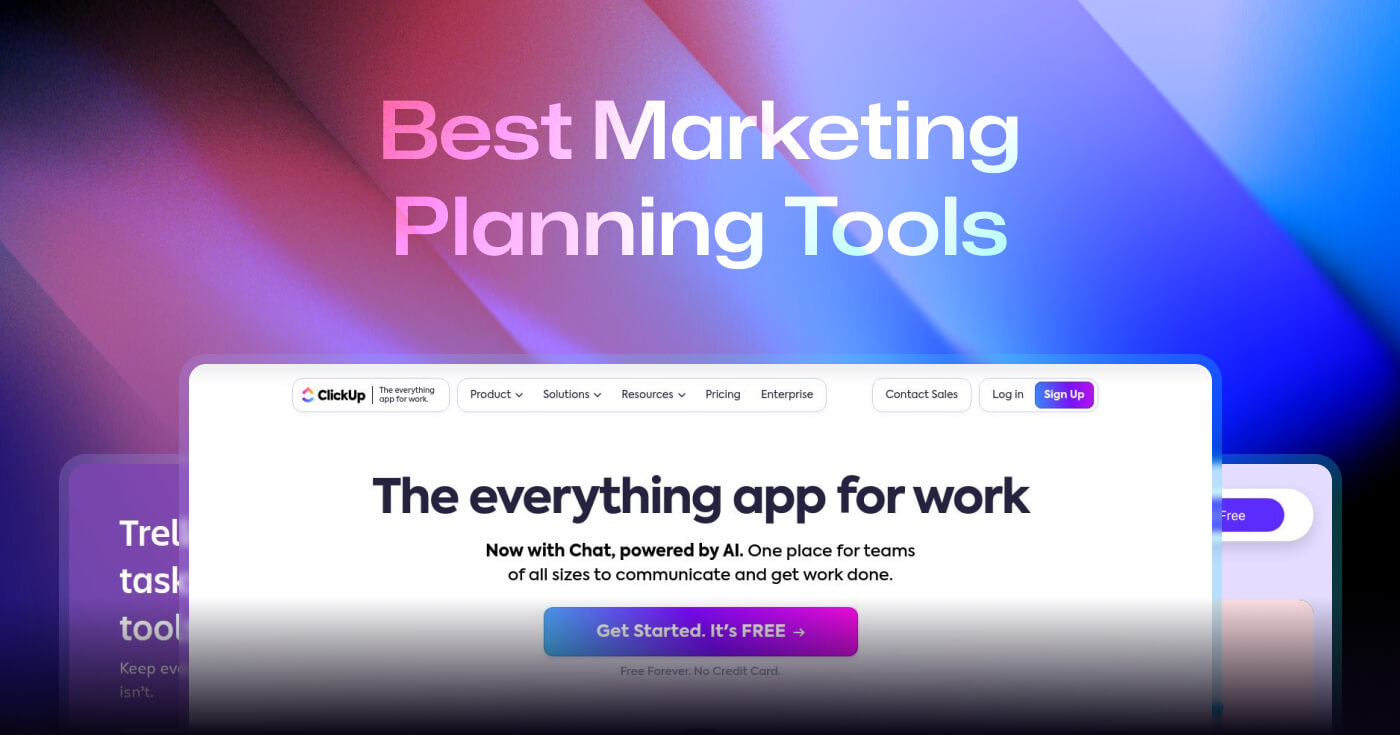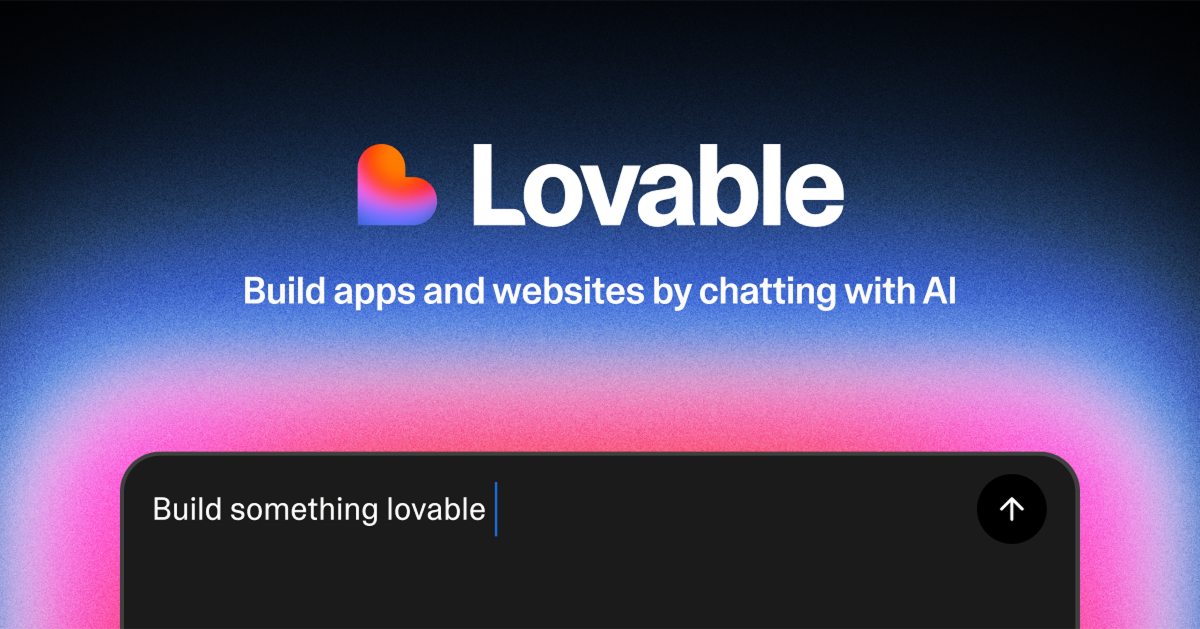Having the right marketing planning tools is essential for businesses aiming to execute impactful strategies efficiently.
These tools help marketers organize their activities, analyze performance, and optimize campaigns for better results.
In fact, research shows that an average of 56% of companies are currently using marketing automation, with 40% of B2B companies planning to adopt the technology.
With marketing trends continuously evolving, utilizing effective marketing planning tools has become vital for achieving success.
In this guide, you’ll explore the top 10 marketing planning tools available on the market to make an informed decision.
Key Takeaways
- Marketing planning tools enhance collaboration and campaign management across teams.
- Personalized marketing approaches provide a significant increase in customer engagement.
- Selecting the right tool can significantly improve your campaign’s return on investment (ROI).
Top 10 Picks for Marketing Planning Tools
- Wrike – Best for project management and team collaboration.
- ClickUp – Best for its comprehensive project management capabilities.
- HubSpot – Best for integrated marketing automation and CRM solutions.
- Trello – Best for visual task management using Kanban boards.
- Asana – Best for workflow automation and tracking.
- GanttPRO – Best for Gantt chart project management.
- Basecamp – Best for streamlined communication and project overview.
- Mailchimp – Best for email marketing and audience management.
- Hootsuite – Best for social media scheduling and management.
- ActiveCollab – Best for project tracking and client collaboration.
How to Evaluate Marketing Planning Tools
Evaluating marketing planning tools is crucial to ensure they meet your team’s needs and objectives. Consider these key criteria:
- Usability: Tools should be intuitive and easy to navigate for all team members.
- Integration: Look for tools that seamlessly integrate with your existing applications (CRM, social media, etc.).
- Features: Analyze the specific features offered, such as task management, reporting, automation, etc.
- Pricing: Ensure that the pricing structure aligns with your budget while offering sufficient functionality.
- Support: Reliable customer support can make a significant difference in your user experience.
From testing user interfaces to consulting with experts, we conducted a thorough evaluation to identify the best marketing planning tools for 2024.
Marketing Planning Tools Comparison Table
| Software | Best For | Key Features | Pricing | Free Plan | Platforms Available |
|---|---|---|---|---|---|
| Wrike | Team collaboration | Customizable templates, Gantt charts | From $9.80/user/month | Yes | Web, iOS, Android |
| ClickUp | Comprehensive project management | Custom fields, Automation, Reporting | From $7/user/month | Yes | Web, iOS, Windows |
| HubSpot | Integrated marketing solutions | Automation, Lead scoring, Custom reporting | From $800/month | No | Web |
| Trello | Visual task management | Kanban boards, Automation | From $5/user/month | Yes | Web, iOS, Android |
| Asana | Workflow automation | Task assignments, Dashboards | From $10.99/user/month | Yes | Web, iOS, Android |
| GanttPRO | Gantt chart project management | Real-time collaboration, Templates | From $7.99/user/month | No | Web |
| Basecamp | Simple project management | To-do lists, Resource allocation | From $15/user/month | No | Web, iOS, Android |
| Mailchimp | Email marketing | Automation, Performance tracking | Starts at $13/month | Yes | Web, iOS, Android |
| Hootsuite | Social media management | Content calendar, Analytics | From $49/user/month | No | Web, iOS, Android |
| ActiveCollab | Project-based work | Time tracking, Budgeting | Starts at $11/month | Yes | Web, iOS, Android |
1. Wrike
Best for project management and team collaboration.
Wrike is a versatile work management platform that enhances collaboration and task management within teams.
Its customizable templates and interactive Gantt charts facilitate the creation and tracking of marketing campaigns efficiently.
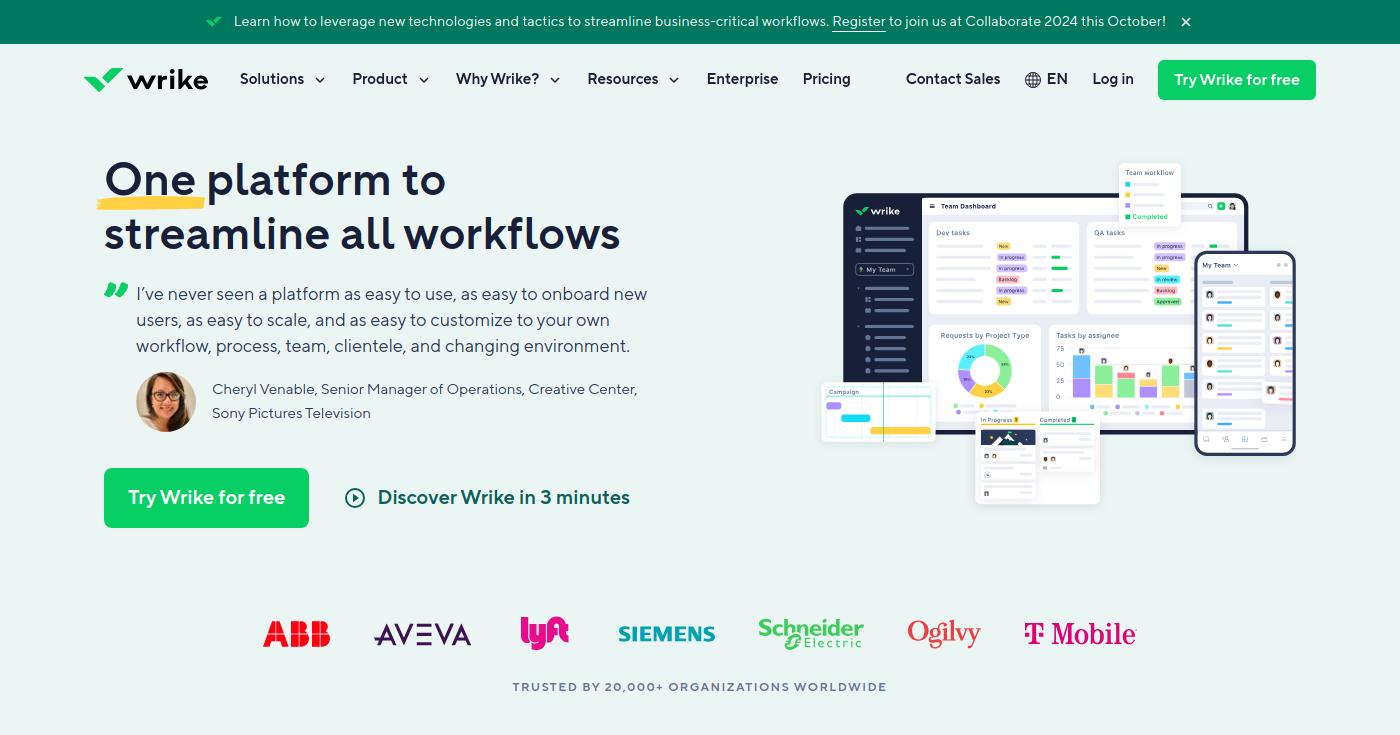
Pros
- Intuitive interface and user-friendly.
- Free version available for small teams.
- Fits various project management styles.
Cons
- Some features may require an adjustment period.
Key Features
- Customizable templates to suit various project types.
- Interactive Gantt charts for effective scheduling.
- Advanced resource management for optimal collaboration.
Pricing
- Professional Plan: From $9.80/user/month for a minimum of 2 seats.
You can explore more about Wrike on their pricing page.
2. ClickUp
Best for comprehensive project management capabilities.
ClickUp offers a robust platform that accommodates various project management needs through customizable fields and automation features, making it an ideal choice for marketing teams.
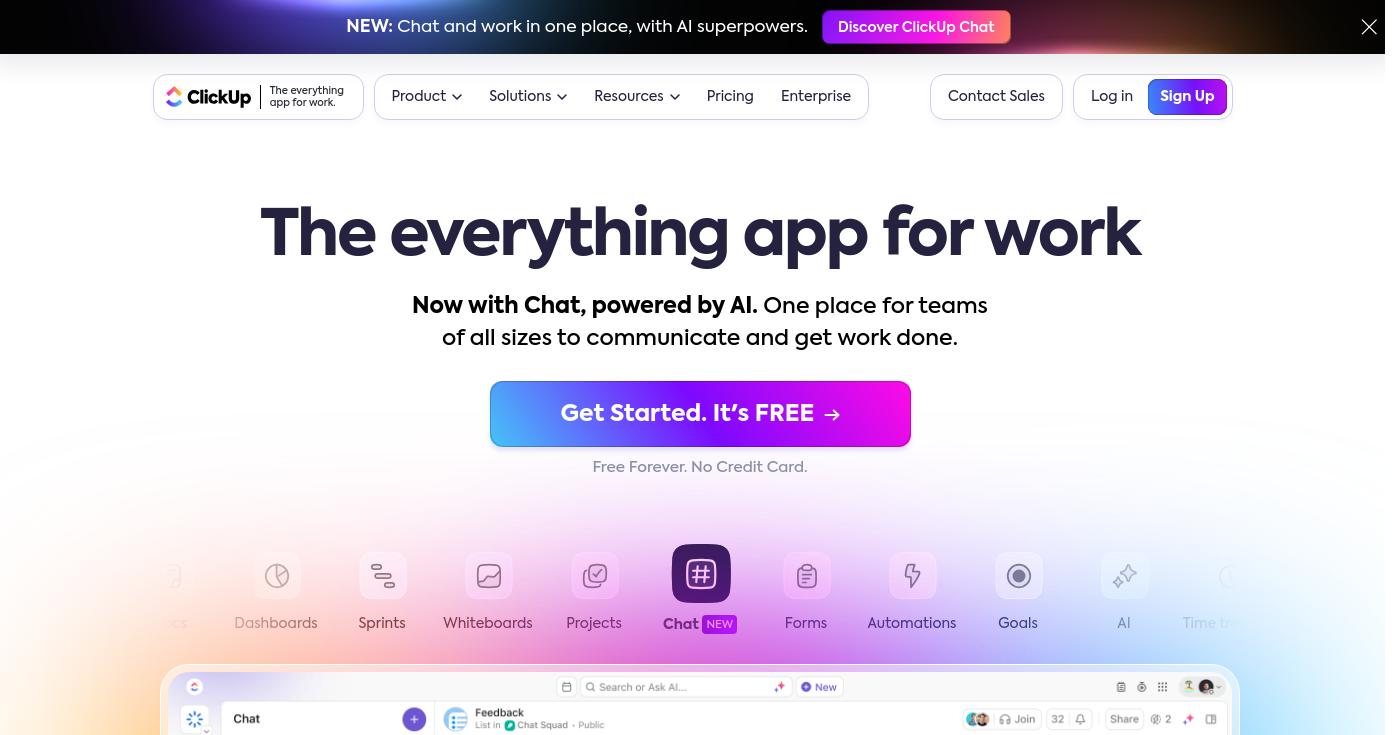
Pros
- Versatile features suitable for various industries.
- Free forever plan for small teams.
- Integrates well with other tools.
Cons
- Initial setup can take some time to fully utilize.
Key Features
- Automation capabilities to simplify tasks.
- Real-time reporting for actionable insights.
- Gantt chart view for visual tracking of projects.
Pricing
- Unlimited Plan: From $7/user/month.
Check out their pricing details here.
3. HubSpot
Best for integrated marketing automation and CRM solutions.
HubSpot is a powerful all-in-one marketing solution that allows businesses to manage campaigns seamlessly while tracking performance across various channels.
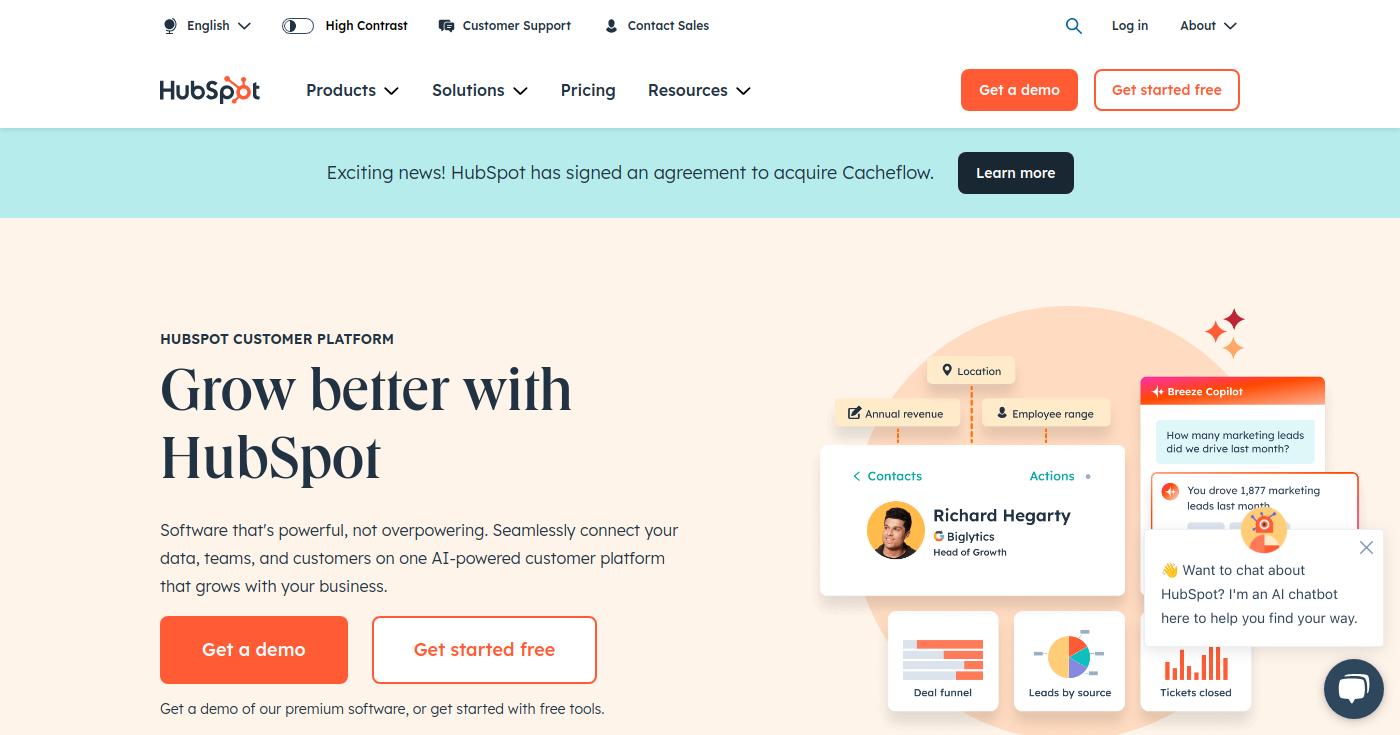
Pros
- Comprehensive platform with numerous features.
- Great community and customer support.
Cons
- Can become expensive as you add more features.
Key Features
- Campaign goal tracking for effective marketing strategies.
- Automated workflows to streamline marketing tasks.
- Customizable reporting for performance analysis.
Pricing
- Starter Plan: From $800/month.
Find more about HubSpot on their pricing page.
4. Trello
Best for visual task management using Kanban boards.
Trello utilizes a simple Kanban board approach to help teams manage tasks visually, making it easier to track progress on marketing initiatives.
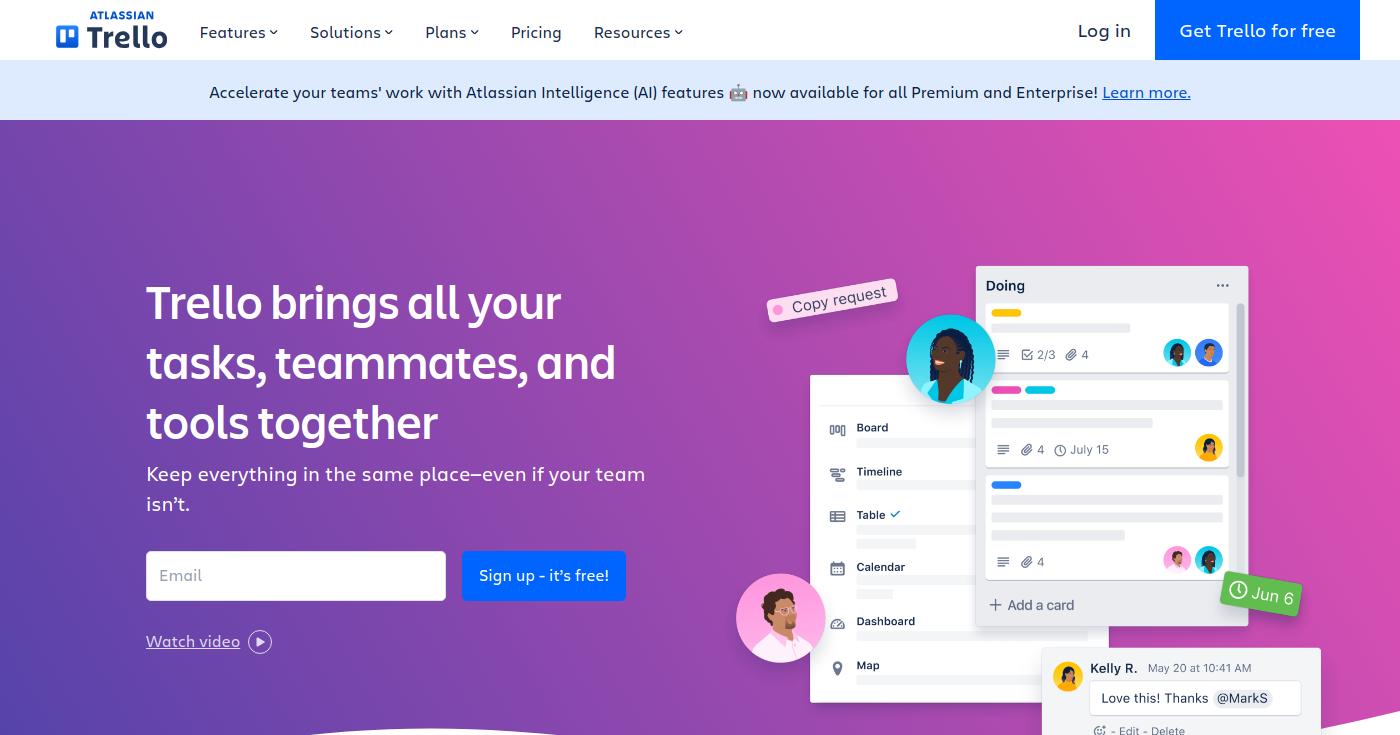
Pros
- Very intuitive and user-friendly interface.
- Adaptable to various project types.
Cons
- Can become cluttered if not managed properly.
Key Features
- Card-based task management system for tracking progress.
- Automation through the Butler tool for enhanced efficiency.
Pricing
- Business Class: From $5/user/month (billed annually).
For further details, visit their pricing page.
5. Asana
Best for workflow automation and task tracking.
Asana enables teams to create detailed workflows and track progress throughout marketing campaigns, providing strong tools for team collaboration and effectiveness.
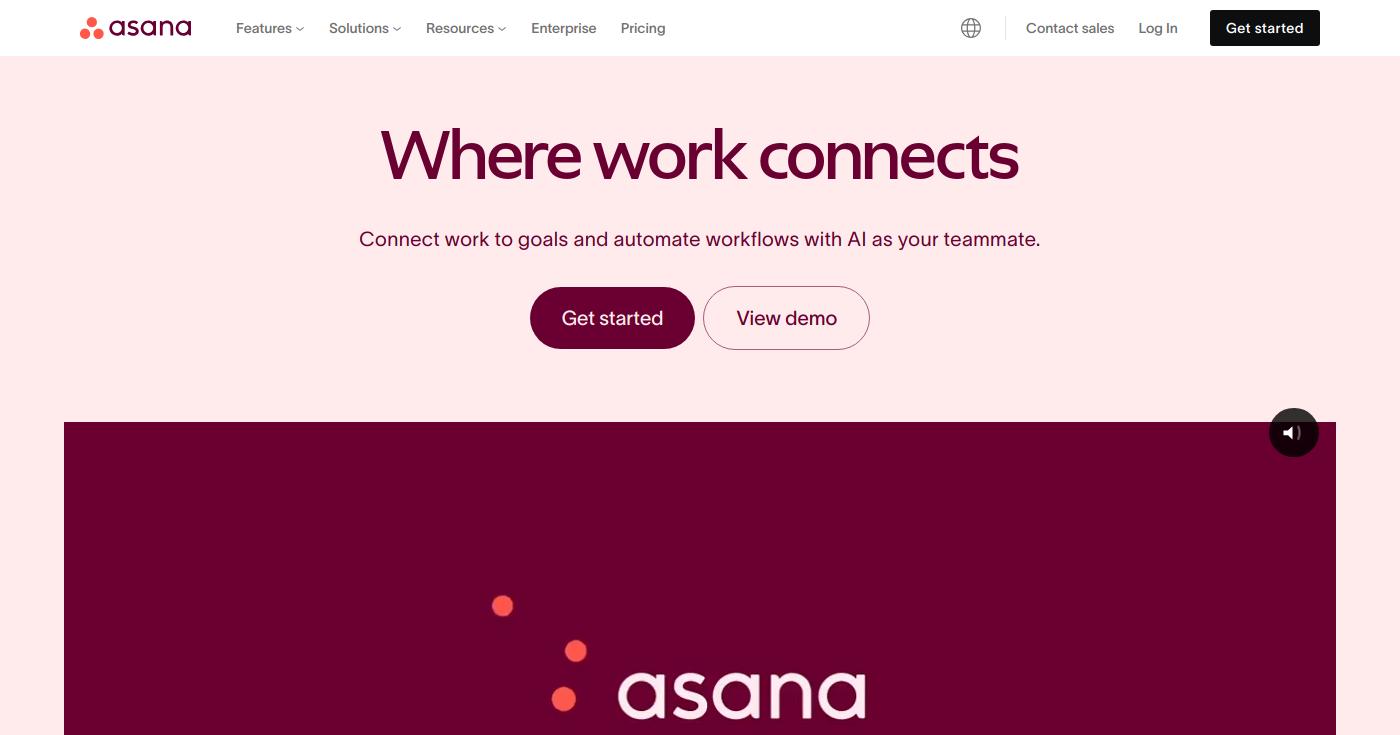
Pros
- Highly customizable workflows and dashboards.
- Strong mobile application for on-the-go management.
Cons
- May have a learning curve for new users.
Key Features
- Task assignments to keep team members accountable.
- Dashboards that visualize project progress.
Pricing
- Premium Plan: From $10.99/user/month.
Check more about Asana on their pricing page.
6. GanttPRO
Best for Gantt chart project management.
GanttPRO specializes in Gantt charts, allowing teams to manage timelines and resources visually, ensuring smooth project execution.
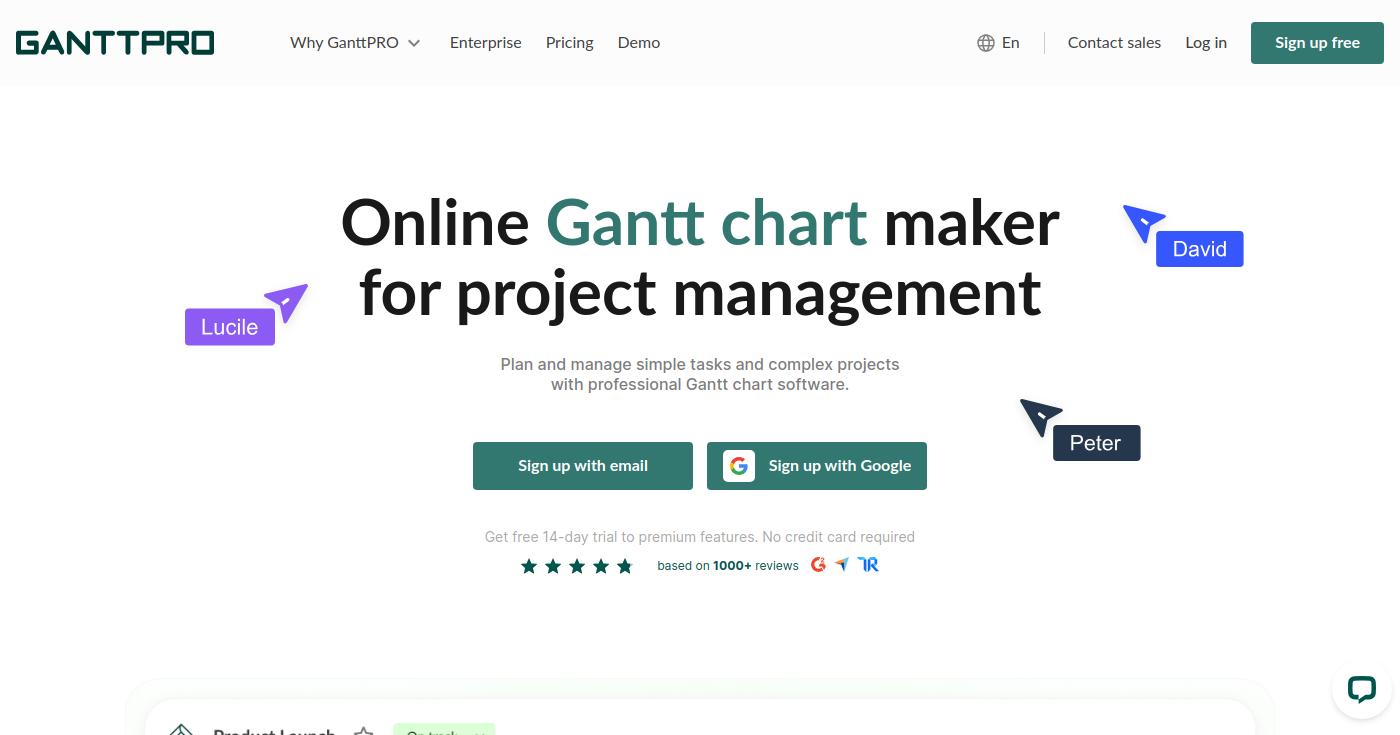
Pros
- User-friendly interface with effective visualization tools.
- Strong project management capabilities.
Cons
- Limited free trial features.
Key Features
- Task and resource management with time tracking.
- Various project templates for rapid development.
Pricing
- Pro Plan: From $7.99/user/month.
Visit their pricing page for more details.
7. Basecamp
Best for simplified project management and communication.
Basecamp focuses on providing a centralized platform for project management while enhancing team communication and collaboration.
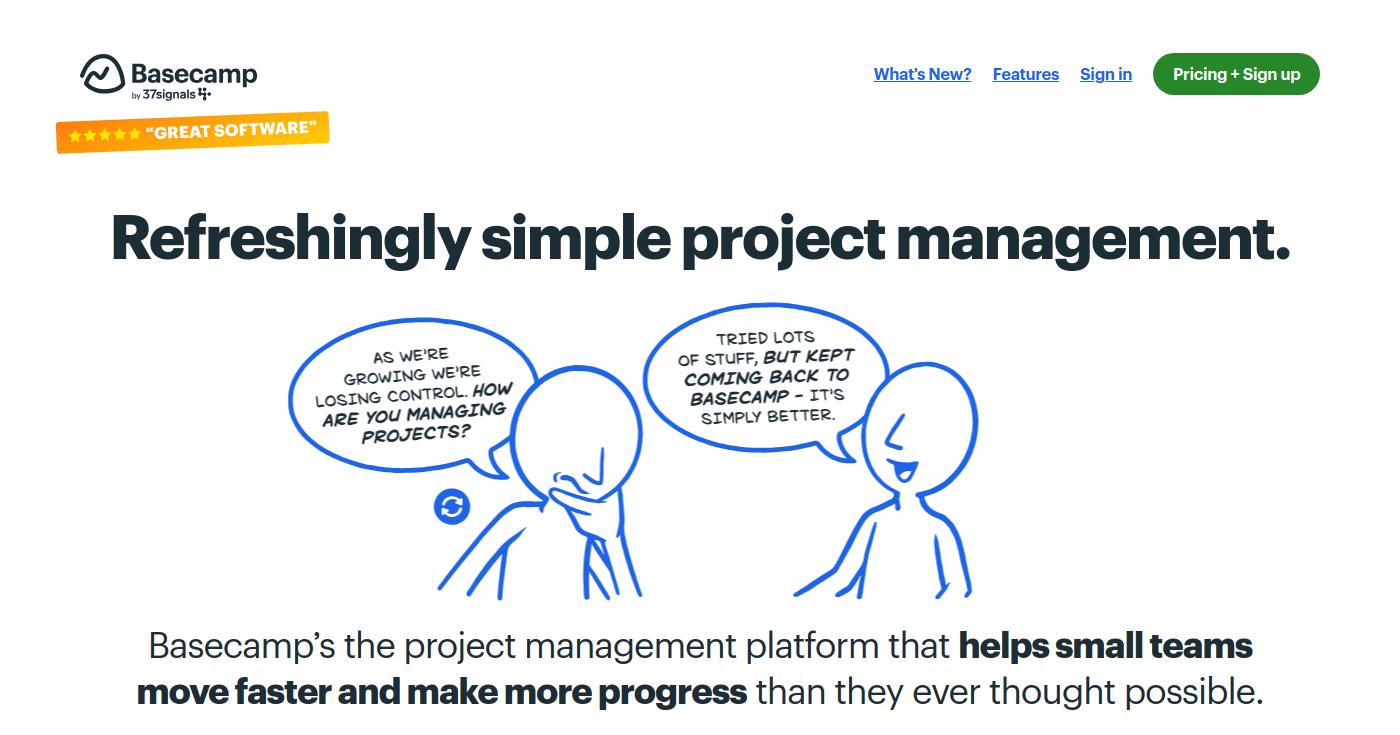
Pros
- Easy to navigate, with straightforward tools.
- Excellent for small to medium-sized teams.
Cons
- Lacks some advanced features offered by competitors.
Key Features
- To-do lists to manage tasks efficiently.
- Document management for easy access to resources.
Pricing
- Business Plan: From $15/user/month.
Find out more about Basecamp on their pricing page.
8. Mailchimp
Best for email marketing and audience management.
Mailchimp is a leading tool for email marketing and provides features that allow marketers to manage and segment their audience effectively.
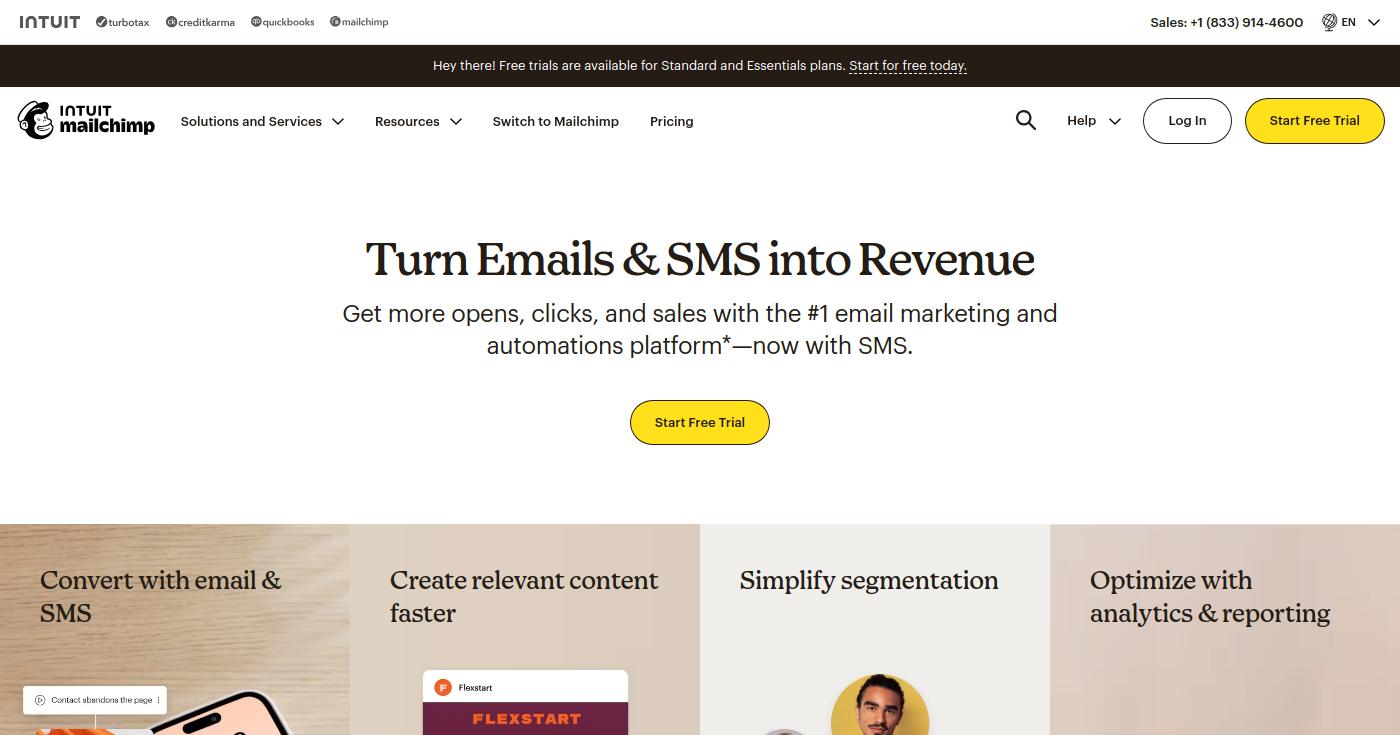
Pros
- Excellent for small businesses and startups.
- Intuitive tools for creating effective campaigns.
Cons
- Complexity can increase with audience size.
Key Features
- Email automation for personalized messaging.
- Campaign performance tracking for data-driven decisions.
Pricing
- Standard Plan: Starts at $13/month.
You can learn more on their pricing page.
9. Hootsuite
Best for social media scheduling and management.
Hootsuite provides efficient management of social media accounts, allowing users to schedule posts and track performance across multiple channels.
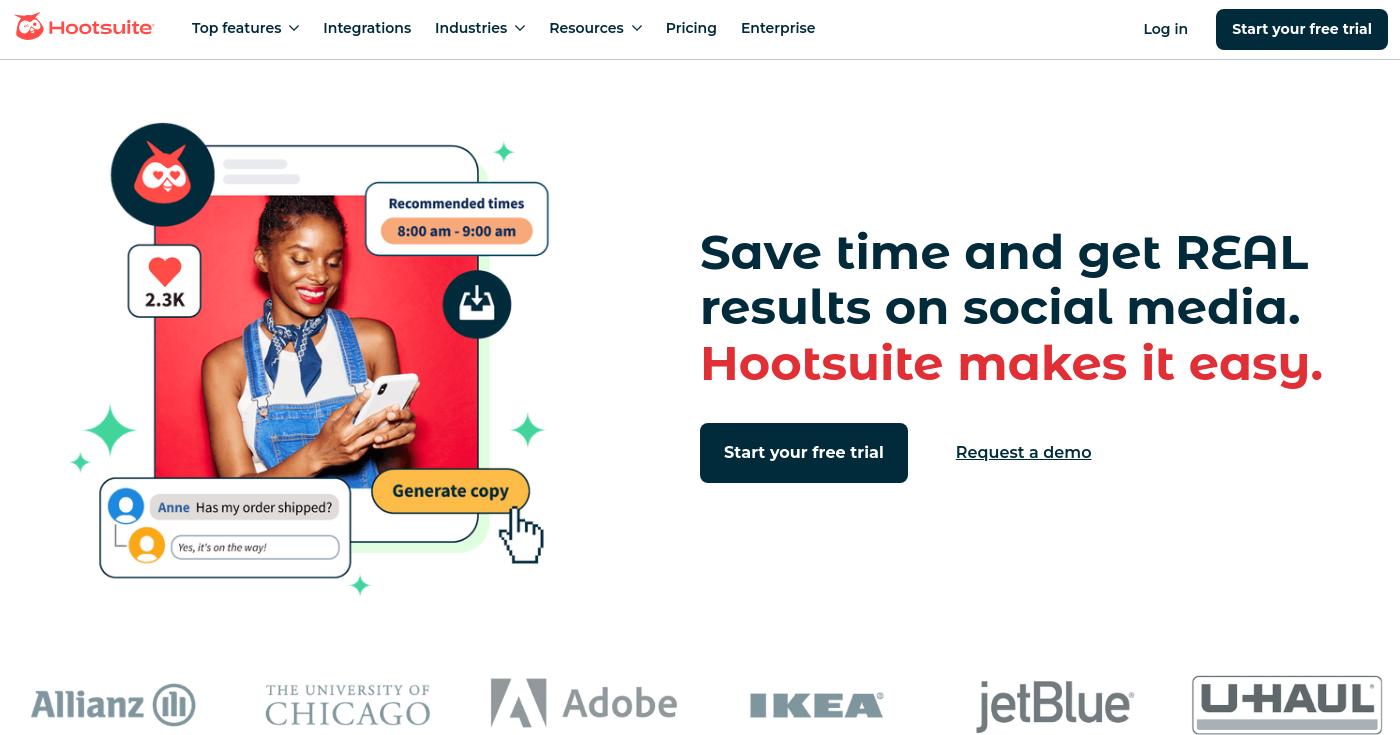
Pros
- Comprehensive social media management capabilities.
- Powerful analytics for campaign performance.
Cons
- Interface could benefit from updates for a better experience.
Key Features
- Content calendar for scheduling.
- Social listening tools to monitor brand engagement.
Pricing
- Professional Plan: Starts at $49/user/month.
For more details, check their pricing page.
10. ActiveCollab
Best for project-based work and client collaboration.
ActiveCollab is designed for agencies, offering tools for managing projects, tracking time, and collaborating effectively with clients.
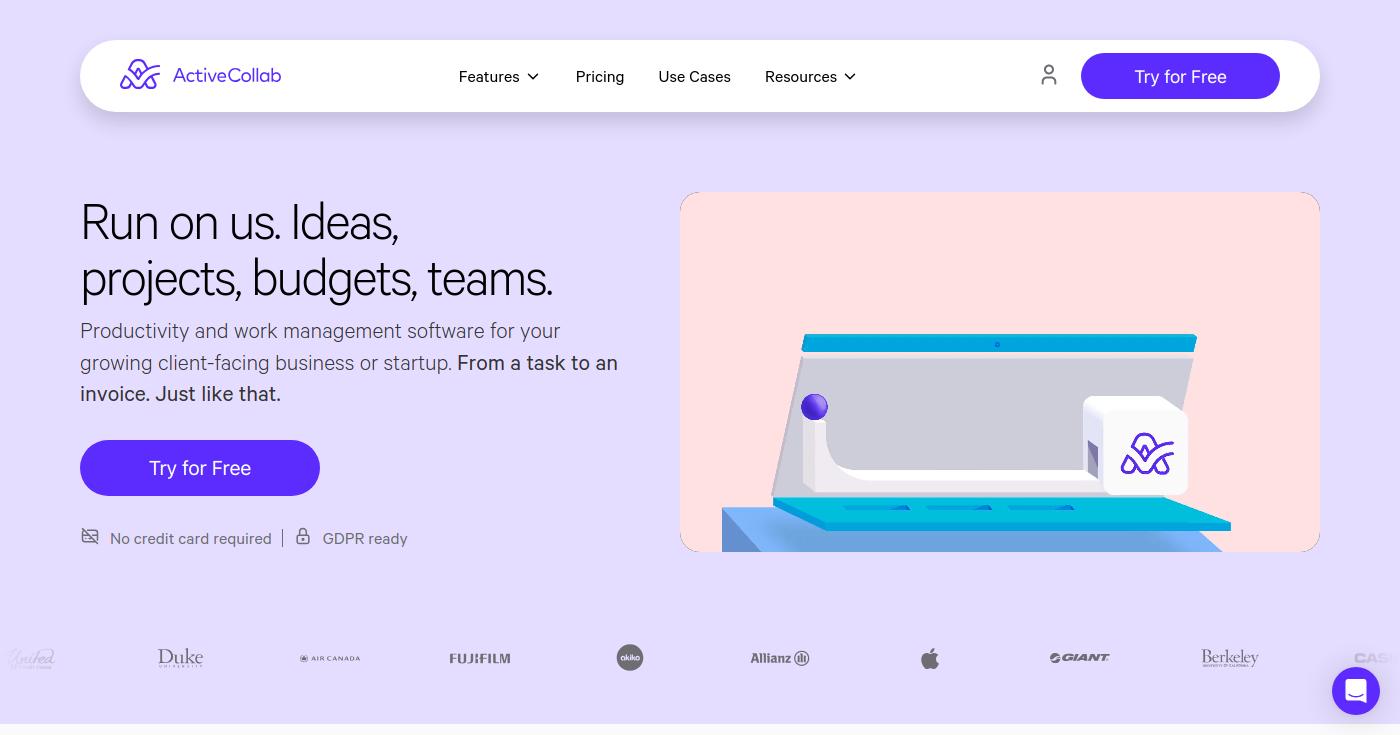
Pros
- Well-suited for project tracking and performance.
- Budget tracking and invoicing capabilities.
Cons
- May lack some advanced features .
Key Features
- Time tracking functionality for accurate project management.
- Client collaboration tools for enhanced communication.
Pricing
- Basic Plan: Starts at $11/month for up to 3 users.
Explore their offerings on the pricing page.
How to Choose the Right Marketing Planning Tool
Selecting the ideal marketing planning tools depends on your specific requirements and use case. Consider these crucial factors:
- Usability: Make sure the tool is intuitive and promotes ease of use.
- Integration: Determine how well it connects to your existing systems like CRM and email.
- Cost-Effectiveness: Evaluate if the pricing aligns with your budget while providing the necessary features.
- Scalability: Choose tools that can grow with your business needs and adapt to industry changes.
The right marketing planning tools can enhance your operations, improve collaboration, and optimize your marketing efforts for better results.
Emerging Trends in Marketing Planning Tools
The marketing landscape continues to evolve with emerging trends that shape tool functionality and user expectations:
- AI-driven insights: Tools that leverage artificial intelligence are gaining traction, enabling better predictive analytics and personalized marketing strategies.
- Integration of tools: The growing demand for seamless integration across platforms is shaping new functionality in marketing planning tools.
- Focus on remote collaboration: The shift to remote teams has increased the need for tools with robust collaboration features.
Frequently Asked Questions
Here are some common questions about marketing planning tools:
What are marketing planning tools?
Marketing planning tools are software solutions that help businesses manage and optimize their marketing strategies, campaigns, and performance.
How do I choose the best marketing planning tool?
Evaluate tools based on usability, integration capabilities, features, pricing, and support. Consider your team’s specific needs to find the best fit.
Are there free marketing planning tools available?
Yes, many tools offer free versions or trials, such as Trello and ClickUp, allowing users to get familiar with the software before committing.
Can I integrate marketing planning tools with other software?
Most marketing planning tools offer integration options with CRM systems, social media platforms, and other essential applications to enhance workflow.
What is the cost of marketing planning tools?
Pricing varies widely, with some tools starting as low as $5/month and premium services reaching $800/month or more, depending on the features and user count.
Conclusion: Making the Right Choice
Selecting the right marketing planning tools can significantly impact your marketing strategy’s efficiency and success. By evaluating your specific needs and considering the features offered, you can choose the tools that provide the best support for your team.
Remember to explore the various options available, and leverage the strengths of each tool to achieve your marketing objectives in 2024.
